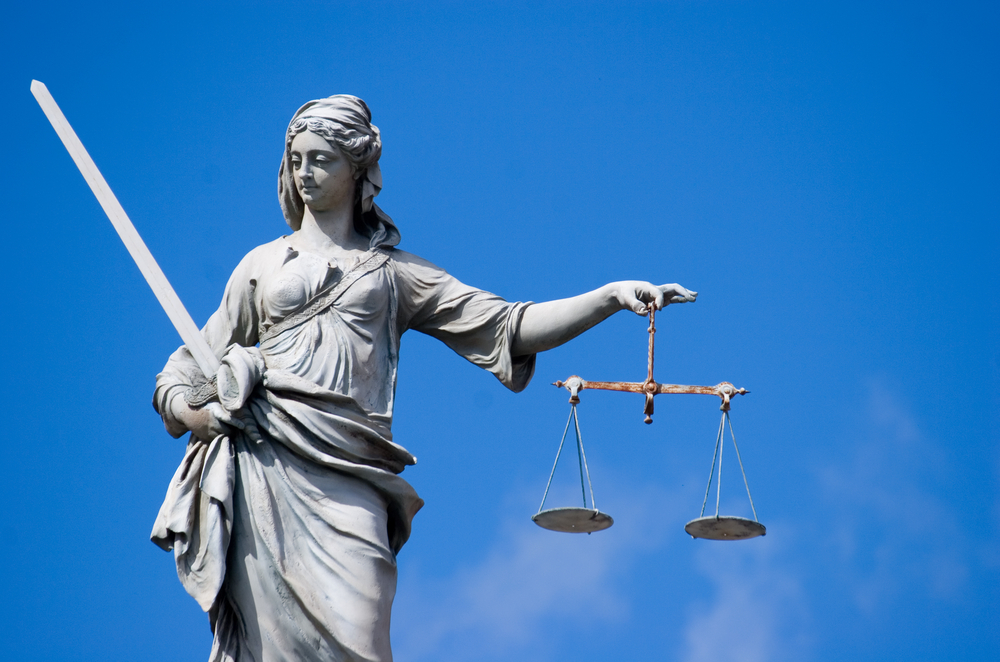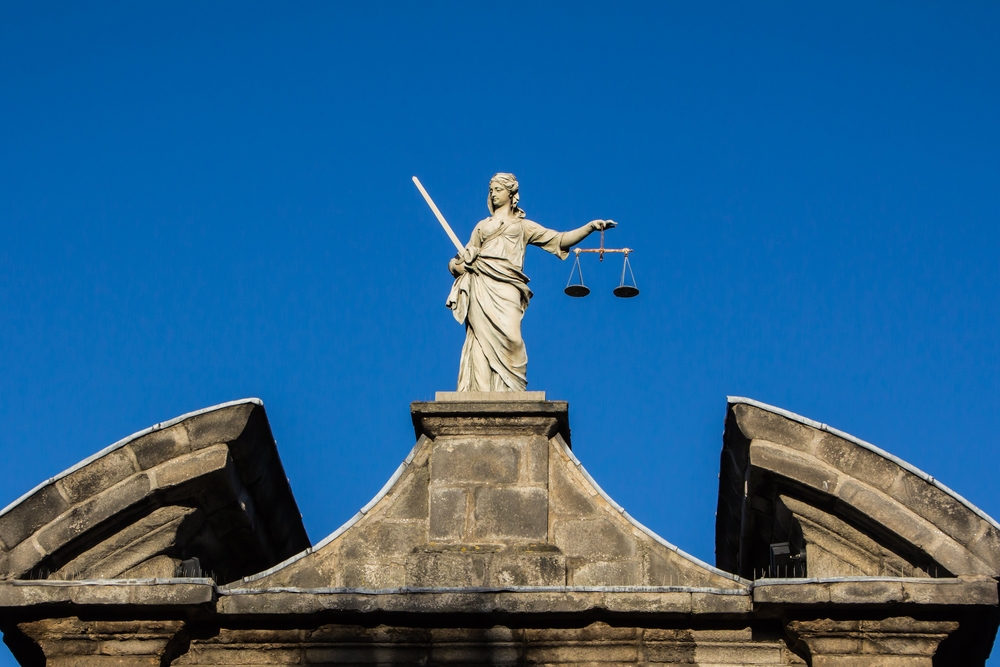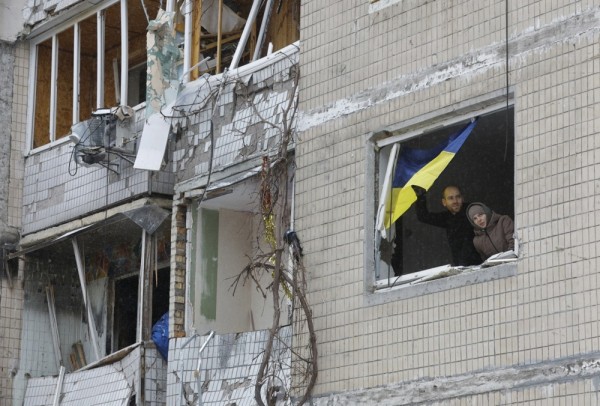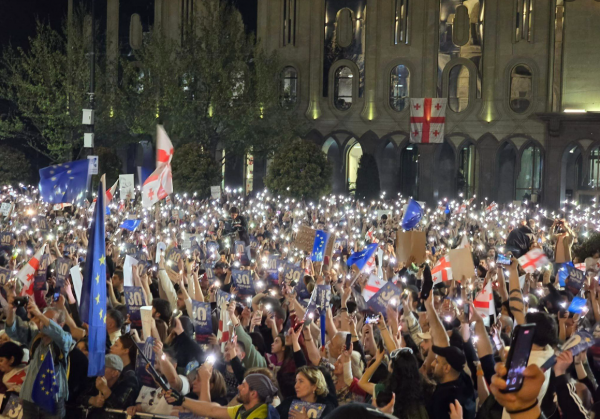It was a scoop that packed a punch. As Ireland struggles with a grinding housing crisis that has made record numbers of people homeless, a young newspaper reporter discovered a landlord was planning a mass eviction – of an entire apartment block.
The reporter spoke to the landlord’s public relations representative, asking for a comment, as is standard reporting practice. Half an hour later, the threat to sue for defamation arrived.
“It was addressed to me by name. It seemed he would sue me personally,” the reporter told the International Press Institute (IPI). How much does it cost to hire a solicitor, the reporter remembers wondering. Would my salary stretch that far?
Not only that, but tenants of the landlord had also received legal threats, warning them against speaking to the press.
“That scared the crap out of them. I lost a lot of sources that way,” the reporter recalls. “They thought even if they were anonymous in the story, he’d still know and would still sue them – that’s what the tenants believed.”
The story was ultimately published, though with the name of the landlord omitted, to be on the safe side. But for the reporter, there was no going back.
“This was the point I decided to leave journalism. I was battling with a PR paid three to four times my salary,” the reporter recalls. “As much as I want to do it, if you get anything wrong, a small mistake, you can be financially ruined. I quit the next week.”
Interviews with journalists and civil society organisations in Ireland on behalf of IPI have revealed how the wealthy and powerful systematically abuse Ireland’s legal system to influence reporting about them, to keep unflattering information out of the public domain.
The journalists interviewed included freelancers, local news reporters, and staff at top national publications. They disclosed how legal intimidation affects the full range of Irish media, from the smallest shoestring podcasts and magazines to major broadcasters.
The threat of defamation proceedings has muzzled the reporting of stories of public interest on topics as varied as the housing crisis, concussion in sport, local community tragedies, sexual abuse, and day-to-day political reporting, the interviews revealed. As a result, the public is prevented from finding out about matters of public interest concerning wealthy individuals, and some of the politicians they elect.
Journalists are also told by their employers and by lawyers not to discuss lawsuits publicly for fear of escalating legal intimidation, preventing the scale of the issue from being widely known.
Cases disclosed to the International Press Institute:
For the purposes of breaking the silence around the abuse of defamation proceedings in Ireland, journalists and civil society actors disclosed defamation cases or threats they were subject to on the condition their names were protected due to concerns about further legal or professional risk.
- One small publisher shared images of a selection of four recent solicitors letters they had received warning of defamation proceedings in response to their coverage of Ireland’s housing crisis. Most represented people with commercial interests in the housing sector.
- A survivor of sexual abuse said they had received a letter warning of potential defamation proceedings in advance of speaking at a public event.
- Plans to report on a sexual harassment suit against a company were shelved after the complainant received a legal threat from company lawyers and withdrew from plans to speak to the press, according to the journalist who wanted to report on the story.
- One small local newspaper was forced to pay solicitors and barristers a sum that could have hired an extra reporter for a year after being accused of defamation by a politician, according to a journalist at the outlet. The article concerned was a summary of previously reported news about the individual. The matter was ultimately settled by the newspaper issuing a clarification. The effect of Ireland’s current defamation law was described as “extremely crippling” and having a “very serious chilling effect”, meaning that if a story carried any risk of triggering a complaint it would likely not be run, unless it was worthy of the front page.
- A local news reporter estimated they had received 20 legal threats in their 25-year career.
- One national reporter described being sued by a property developer for reporting on safety defects in buildings. The case was never concluded, and the journalist concerned believes it was not taken to win, but as a tactic to help the developer to continue to secure business deals as he could downplay the allegations as being contested in legal proceedings. “Naturally it never went anywhere, because he didn’t have a leg to stand on,” the journalist said. “He was using the system to deflect from the fact he’d built appalling apartments at the start of the boom. This is typical – you issue proceedings and you let the thing sit there, with the hope the newspaper will settle, and you can claim a victory one way or another.”
- In one case, a civil society organisation was threatened with a defamation suit for highlighting privatisation in medical care by a business with interests in the sector. It never went to court and the complaints were considered legally doubtful, but due to the threat of the costs involved in defending a case the organisation was forced to delete communications, shut down campaigning on this issue, and keep the whole matter a secret.
- One freelance journalist disclosed they were currently subject to two defamation proceedings, describing them as “expensive” to defend against. Regarding the effect on reporting, the reporter said “we all have to be more careful” due to the increased litigiousness of certain parts of society.
- A political party was said to have sent defamation threats to two different media organisations in response to their press office being contacted with a request for comment about a story.
- Documentary footage of personal interviews about a tragic news event was radically cut due to legal pressure, leaving the parts that were left in “pointless”, according to a filmmaker. “Viewing of the finished film was agreed – and within hours we were threatened with legal action. Five whole minutes were cut out from different places leaving a huge hole,” the filmmaker said. “It stopped people being themselves, saying how it made them feel. Not true to the tragedy either.”
- One author described receiving a letter from a politician after publishing a book in which the politician was mentioned, demanding monetary compensation and that copies be immediately removed from the shelves. “I can still relate to the feeling when I got that letter about the book,” the author said. “For a day I was in a state. It’s very stressful. It’s particularly stressful when you know you didn’t do anything wrong.”
- In one case, a then-member of the government was given a payout of several thousands by a newspaper because it had made a mistake with their name in copy, mixing them up with someone else with a similar name, according to a journalist familiar with the incident. The amount given to the politician would have paid for 20 freelance articles.
- One major media organisation changed plans to cover the issue of concussion in sport after receiving legal threats, according to the journalist who wanted to report on the story.
- One broadcaster chose to cover a story about a politician through a pre-recorded interview, rather than their usual live debate panel format, because the politician concerned is reputed to be litigious. The decision was taken to reduce the risk that any stray remarks live on air could trigger a defamation threat, journalists were told.
- One organisation chose not to publish a story about politicians threatening media organisations with defamation proceedings, because the subject was deemed legally risky, a journalist involved with the story said.
- One major news organisation has stopped almost all reporting about certain politicians due to legal threats, two journalists said.
- In one case, a state contractor threatened to sue a reporter if a story involving them was published, according to the journalist concerned.
- One civil society organisation working on accountability was threatened with defamation proceedings by a commercial interest over a report they had published. Years later the case has yet to reach court, but the organisation has lost its professional indemnity insurance as a result. The case was taken “to mess with us”, rather than with the hopes of succeeding in court, an employee at the NGO said, adding that they believed the process was being deliberately drawn out. “We spent a lot of time doing this, instead of what we should be doing.”
- One person who had wished to speak to journalists about a story involving a politician said that aggressive threats of legal proceedings had repeatedly been sent to the home of their elderly parents. They believe this was done deliberately “to humiliate and embarrass me” and “to scare” other people away from speaking to the press. The costs of responding to the letters have been roughly €1,000 a month for six months.
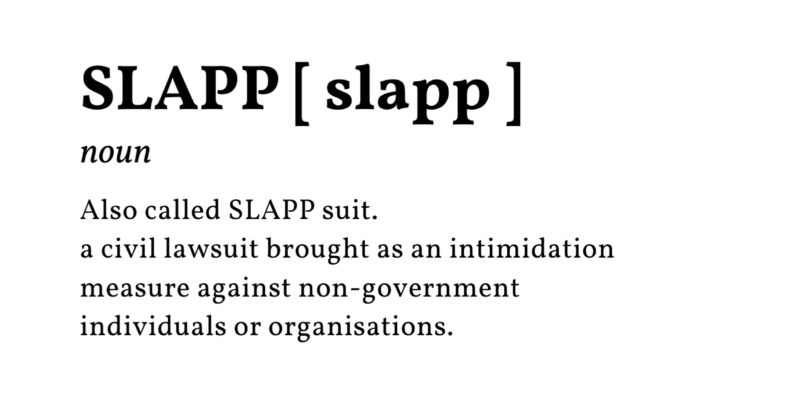 The playbook
The playbook
The legal threat typically arrives by letter or email. The wording can be highly aggressive, often instructing the receiver that the contents of the letter must be kept confidential, or there will be further repercussions.
This goes against advice issued by the Solicitors Regulation Authority in the United Kingdom, which has warned solicitors against getting involved in so-called strategic lawsuits against public participation or SLAPPs, which involves abusive litigation that is aimed to silence critics.
The SRA warned solicitors against using excessively intimidating language, issuing far-fetched threats about fines or imprisonment, or sending such letters as part of a “public relations” strategy as a way to stop journalists from reporting a true story. The body has reminded law firms that solicitors have a duty to act with honesty and integrity.
The body also warned against sending correspondence that is marked as “confidential” or similar when this has no legal foundation, against sending excessive numbers of letters, and against pursuing “unnecessary and onerous procedural applications, intended to waste time or increase costs”.
Research for this report revealed that all these tactics are used in Ireland to prevent the publication of information of public importance, the hallmark of a SLAPP. Some interviewees called for the Law Society of Ireland to issue similar guidance as the SRA.
The interviews indicated this is an all-island issue, with some solicitors appearing to specialise in selecting the most favourable jurisdiction between London, Belfast, and Dublin, or threatening their targets with multiple proceedings in different jurisdictions at once.
Those who tend to take aggressive defamation proceedings are most commonly business owners or politicians, according to interviews for this report. The politicians who have launched or threatened defamation proceedings against Irish journalists and news outlets span the political spectrum.
But what unites the people who do this is that they have the monetary means, and that they tend to use legal intimidation repeatedly. Some business leaders and politicians have gained a reputation for being particularly litigious, which can make newsrooms more hesitant to report about them.
Journalists described solicitors’ letters arriving in a predictable pattern, with some politicians seeming to keep lawyers on retainer for the purposes of aggressive reputation management.
During the past year a series of defamation cases taken by politicians against journalists and media organisations on the island of Ireland – including by Sinn Féin MLA Gerry Kelly, Left independent MEPs Mick Wallace and Clare Daly, and Sinn Féin leader Mary Lou McDonald – have been flagged for press freedom concerns.
The interviews revealed that such cases are the tip of the iceberg. Only a fraction of the defamation threats received by media organisations and journalists go to court, or even go beyond an initial warning letter. But each letter received, regardless of the merits of its complaints, imposes onerous costs on already thinly-stretched media organisations.
National reporter:
“I think journalists who say that legal actions don’t affect their future behaviour aren’t being honest. If you get a legal letter from someone, the very fact of its existence will determine how and in some cases if, you write about that person again. A positive effect could be that you will research a piece even more thoroughly, upping your number of sources for example. But a negative is that you may censor yourself or not even write a piece at all.
“Some people are serial litigants and that makes people wary of going near them in terms of media coverage. This is particularly problematic if the people concerned are politicians which has been the case with me. It is undemocratic not to report on certain politicians because you are fearful of legal action even when you know a story is true and in the public interest.
“In my experience, some people including Irish politicians send legal letters even when they are aware the story is accurate just as a shot across the bows. And some newspapers issue an apology or clarification even when none is warranted, just to avoid costly litigation. Needless to say, this is disastrous for a free press.
“The fact that politicians are so well paid and resourced compared to journalists (in an Irish context anyway) adds to the pressure. In the case of two politicians I have experience of litigation with, they appear to keep a solicitor on retainer. Still I like to think myself and my immediate colleagues ultimately remain undaunted in our bid to give fair, accurate and informative coverage.”
‘Getting it legalled’
Significant day-to-day costs are imposed on newsrooms by the administrative burden and legal fees required to pay solicitors to systematically check articles for potential legal risks and to respond to continual threats to sue.
A baseless accusation of defamation that may have no chance in court nevertheless may therefore still cost hundreds of euros an hour in solicitors’ fees to respond to, while sucking up time for thinly-resourced newsrooms.
The process of having an article checked by a solicitor for legal risk has been adopted as routine practice in many Irish news organisations, imposing steep costs on a struggling industry. It’s known as “getting it legalled”.
The practice of “legalling” shapes reporting, as reporters learn how to craft articles that won’t be flagged as risky by lawyers. Public interest vies with legal risk as a consideration for publication. Reporters said this can muffle the clarity of the information conveyed and commonly leads to details being pre-emptively watered down to avoid a complaint, even when the facts of the story are demonstrable and clear.
An editor at one local newspaper apologised for being exhausted when contacted for an interview. The editor said they had had to work well past midnight the previous night to “legal” articles in time for their print deadline, and had been up early the next morning to care for children, a small illustration of the daily burden imposed on journalists by the stringent defamation environment.
The outlet had explored the possibility of getting insurance against defamation, the editor said, but was told that this was subject to conditions that were impossible to accept. These included getting each contributor to agree to indemnify the outlet, and being prepared to settle rather than fight any claim, regardless of its merits.
The very largest organisations may have an in-house lawyer employed on staff. Smaller news organisations often rely on the legal training of their journalists. Some staff at smaller magazines either have law degrees or are qualified lawyers themselves as well as journalists, something that can be important for smaller outlets to keep going as it reduces the initial upfront costs of responding to defamation threats.
Editor at a small publication:
“We obviously try not to let the fear of being sued change what we cover, but it’s there hanging over us all the time. We know that even if we get everything right, a person could sue us, and we’d have to defend the case, which would cost a minimum of tens of thousands of euro, and could easily reach into six or seven figures if it goes to trial. We don’t have insurance and don’t have the money to pay for that up front, even with the prospect of recouping it if we won and costs were awarded to us — we’d have to either get pro bono representation or concede the case and grovel for mercy. It’s very stressful. Sometimes people threaten to sue us if we publish anything about them at all… we just have to guess whether they are serious or bluffing, and decide whether the story is important enough to be worth taking the risk of publishing it in these circumstances.”
National reporter:
“I’ve probably received around a dozen legal letters threatening defamation action in response to reporting on organisations or individuals over the last five years. In many cases we have been able to publish despite the threats, but in some cases, even where our story is backed up by solid documentation and proof, the threat of a costly legal case (even one which our media organisation might eventually win) has meant a number of stories have been spiked, sometimes meaning information that would be in the public interest is kept from the public. Ireland’s defamation laws are overwhelmingly weighted towards protecting the powerful, and against journalists doing their job.”
The costs
It’s typical for news organisations to pay a solicitor to respond to each defamation threat they receive, with rates said to start from €350 an hour. These fees escalate the further a legal complaint goes, with costs rapidly rising into the thousands and tens of thousands once barristers or senior counsel are involved.
One small outlet with limited resources described securing a ‘mates rates’ arrangement with a lawyer to help respond to the frequent defamation threats they receive. Another small publication, which is loss-making, spent €10,000 defending one case before it was dropped.
A journalist at a national publication said that the legal advice they received was to settle any complaint with compensation as a default, because even in the case of victory with full costs awarded to the media organisation, the complaining party would delay or avoid paying out the money owed.
“You’ll have spent fifty grand defending a story that is absolutely true,” the journalist said. “The legal advice is: give them ten grand and get them to go away. Cut your losses.”
“In 80 or 90 percent of cases you’re talking about a mistake, not something malicious,” the journalist continued. “Stuff I do gets legalled any time there’s a hint of anything – the newspaper does it routinely, every day. If they think there’s an issue they’ll refer it to a solicitor.”
Apart from the direct monetary cost involved, the process of referring articles for checking by a solicitor, responding to the solicitors’ questions and reviewing their advice takes up working hours of editors and reporters in newsrooms that are already thinly staffed.
One small publication said they did not have the money to fight objections. “We’ve fought and won a few [cases]. But usually we just delete or take down, as our resources aren’t able for a prolonged scrap,” the founder said.
In response to a query from this author, Tom Lyons of business publication The Currency said he had received legal threats “at least 30 times”. He shared an image from a legal firm representing an Irish businessman. An objection that a number written as €2.88 billion instead of €3 billion in the article “was used to undermine the entire story”, he said.
Fears within media organisations that publicly disclosing a threat could escalate the dispute means that media organisations and journalists participate in keeping the scale of the issue unknown to the public.
But there is one major media organisation for which figures are available. Because it is a public body, national broadcaster RTÉ is required to disclose data about the cost of its legal proceedings under Freedom of Information requests.
RTÉ has been hit with 29 sets of legal proceedings over the six years to 2022, according to data released to the Irish Examiner. These cumulatively cost RTÉ €4.7 million, with some costs still accruing as proceedings are not concluded – an average of €160,000 per case.
National reporter:
“It had a huge impact on my own confidence and my own career. It was my biggest story to date, and it was canned because of a solicitor’s letter.”
Video reporter:
“I was threatened by a state representative and was called, emailed, with veiled threats to not cover the story. I immediately reduced editorial risk. They knew where I lived. The effect is absolute. It waters down, it hides facts… It suppresses free speech about your own personal experience.”
Why is it like this?
Ireland’s defamation laws are considered to be among the harshest in Europe and have been criticised as excessive by the European Court of Human Rights, the Council of Europe, the European Commission, and various media freedom organisations. The International Press Institute has previously described Irish defamation trials as “wildly unpredictable”.
As IPI previously reported, a history of juries awarding vast damages to complainants is considered to have had a chilling effect on journalists’ ability to freely report, and the lack of transparency about how the level of compensation is determined has been criticised by Ireland’s Supreme Court.
The prominent left-wing politician Proinsias De Rossa was awarded €380,000 in 1999, a communications consultant was awarded €1.25 million in 2014, and an initial award of €10 million to a former company executive was reduced on appeal to €250,000 in 2019. These are a level of damages that could bankrupt some media organisations at a stroke.
In contrast, Austria caps damages at €50,000 for the worst cases, while typical damages in the Netherlands range from €1,000 to €5,000.
Aside from the well-known stringency of Irish defamation law and the history of large payouts, interviewees for this article revealed a number of indirect factors that restrict how free journalists feel to report facts that are in the public interest.
These include the high fees required by solicitors to reply to threats of legal action – a cost imposed regardless of the merits of the initial complaint or its likelihood of succeeding in court – as well as the long length of proceedings, which can drag on for years without conclusion.
Some journalists believed that complainants seek to draw their cases out as long as possible deliberately, potentially never intending to bring the issue to court. This means that the defamation threat ‘hangs over’ the reporter or media organisation for years without conclusion. Litigants use this as leverage over the media organisations, the journalists said, because a pending and unresolved legal case can persuade editors to smother further reporting on the individual concerned.
In addition, some journalists also spoke of a risk-averse culture among management and the solicitors that advise media organisations, which they say leads to a conservative approach to publishing and a self-imposed silence about defamation cases, keeping the scale of the problem from being publicly known.
Two interviewees said insurance companies were imposing difficult conditions as a condition for providing indemnity cover, such as that media organisations commit to settling complaints with out-of-court payouts as a default, something they warned could be incentivising further complaints.
National reporter:
“I have been subject to several threats of litigation over the years. The cases where media organisations have gotten something wrong are probably those easiest dealt with, as when there is a genuine mistake it can be dealt with quickly. But it is those where powerful individuals in politics or business want to stifle debate which can have the most chilling effect. These individuals just allow the “proceedings” to sit there for months and years without taking any real steps to go to court where costs and legal determination might become involved. In a legal system such as Ireland’s, with its draconian defamation laws, this can have the effect of stopping all reporting on the individual concerned. The [media] organisation takes the view that they will defend the initial threat in court if needs be, but then becomes paranoid that any subsequent coverage could cause them to lose that case. The result is that in my organisation, all reportage of the doings of that powerful individual or anything associated with them, goes through such a restrictive legal review that in most cases subsequent stories are dropped. The SLAPP in action.”
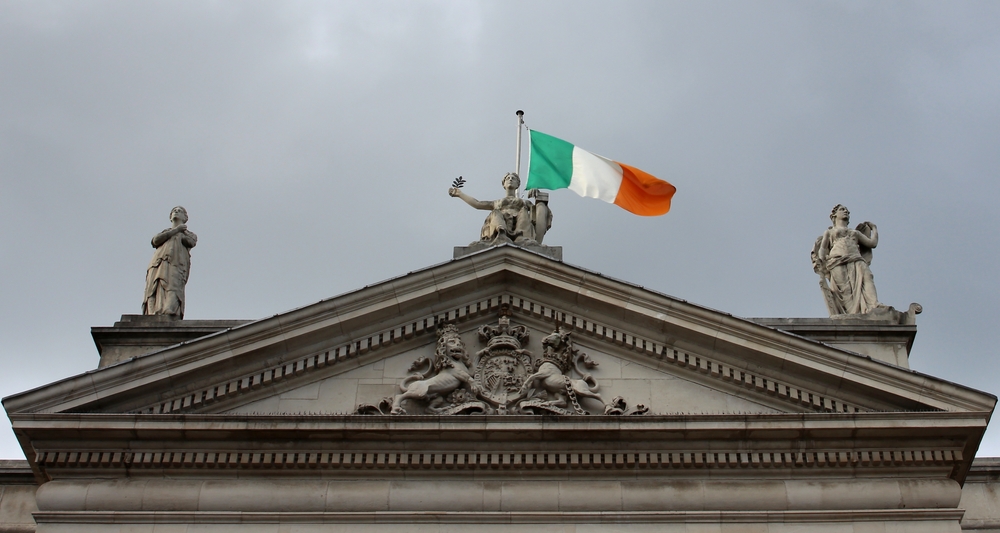
What can be done?
A government review of defamation law recommended last year that defamation trials should no longer have juries, which is an unusual practice in Europe.
The government has proposed a reform of the law to protect “responsible public interest journalism”, to encourage corrections and apologies as a remedy where possible, and to take measures to reduce legal costs and delays.
However, the government stopped short of proposing a cap on damages, arguing that this would be too rigid. The promised legislative reform has yet to be carried out.
The European Commission has proposed introducing a directive with the aim to “protect targets of SLAPPs and prevent the phenomenon from further expanding in the EU”. The scope is limited to cases with cross-border implications, because defamation falls under the competence of national law.
The Commission proposal would encourage member states to include safeguards in their national laws to address “manifestly unfounded or abusive cases for civil matters” with cross-border implications.
This would mean allowing courts to dismiss “manifestly unfounded” cases at an early stage, with the burden of proof falling to the claimant. Claimants would have to shoulder all legal costs if cases are dismissed as abusive, and courts would have the power to impose penalties for the taking of abusive cases. Targets of SLAPPs could also claim compensation. EU countries should also refuse to recognise a judgement from a non-EU country if the case is abusive or “manifestly unfounded” under national law.
The Commission has also encouraged the abolishment of prison sentences for defamation, the use of civil law rather than criminal law, and training of both legal professionals and potential targets of SLAPPs to encourage better recognition of the phenomenon.
The Irish government has expressed support for the Commission’s proposal. However, there are now concerns that the draft is being significantly watered down as it is negotiated with EU member states.
In March, members of the Ireland Anti-SLAPP Network wrote to the Irish government expressing its concern at a newly published compromise version of the directive. The letter accused the new draft of “watering down crucial protections and radically narrowing the scope of the procedural safeguards”, including by making the bar for pre-trial dismissal of cases so high it would “render the proposed early dismissal mechanism entirely redundant”.
“It is difficult to see how the mechanisms proposed in the compromise proposals would make any material difference to those targeted by SLAPPs. It is therefore crucial that the Department of Justice acts now to ensure that the European Council does not water down the provisions in the EC’s proposed directive, but rather builds on them to ensure robust protections are in place against SLAPPs in Europe.”
- The Ireland Anti-SLAPP Network has been advocating for stronger legal protections for journalists and NGOs agaisnt Strategic Lawsuits Against Public Participation (SLAPPs). It is part of the CASE Coalition, a network of non-governmental organisations from across Europe united in recognition of the threat posed to public watchdogs by SLAPPs.
This article was comissioned by IPI as part of its work in the Media Freedom Rapid Response (MFRR), a Europe-wide mechanism which tracks, monitors and responds to violations of press and media freedom in EU Member States, Candidate Countries, and Ukraine. The project is co-funded by the European Commission.


